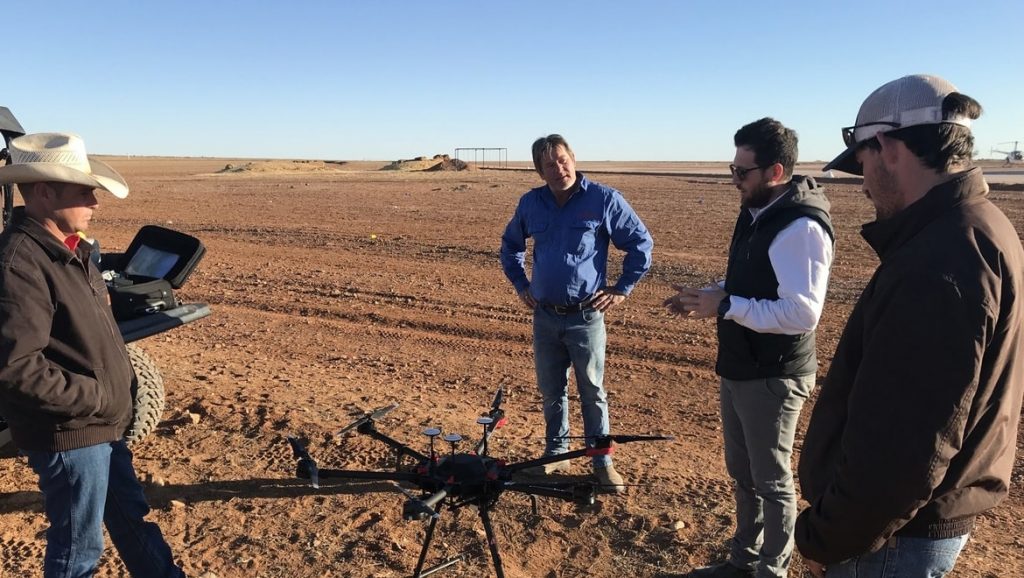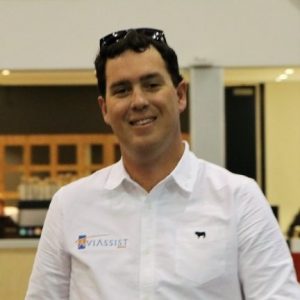
With a deep understanding of the drone industry, embracing innovation and new-age thinking, Aviassist’s team of aviation professionals guide and support you through comprehensive drone training and operations. Find out more about Aviassist and what it takes to facilitate flight as a remote pilot, with managing director Ross Anderson.
Article provided by Aviassist.
In terms of RPAS training, Aviassist has been on the scene for quite some time. What led you down this path?
We’ve always been about enabling organisations through aviation, and in the RPAS space it’s allowed us to benefit many industries rather than the few. It’s been quite a rewarding journey, when we entered there wasn’t a clear pathway to get a Remote Pilot Licence. You literally had to do a Private Pilot’s Licence exam with separate flight training. As it was the only pathway at the time we trained via this method for some time while approaching the Civil Aviation Safety Authority (CASA) for an alternative. We worked with CASA for a number of years to develop and get a new integrated program approved, specifically contextualised for RPAS operations.
As complexities of organisations utilising RPAS increase, we evolve and continue to build pathways to gain approvals to fly higher and further as their needs develop. The core of what we’re trying to do is enable an organisation to use these tools effectively to improve safety, save time and money, among other benefits of course. Supporting these organisations often requires Aviassist to develop and implement custom training, which Aviassist completes in-house. Aviassist’s ability to produce high-quality deliverables in-house assists in the continual improvement in the RPAS training space.
There is still significant development to go, which is an exciting prospect. Our clients are really the pioneers, we use our wealth of aviation experience to assist them to their goal. We continually innovate to ensure their success and future growth. Our business model is simple, we have genuine interest in the success of others. We look after them and they ultimately look after us.
So, you’ve taken things from zero to where they are now in the RPAS training space. What’s your background?
A professional pilot by trade. Many years doing a variety of different flying activities, from aerobatics and warbirds through survey and aeromedical. Aviassist actually started as a team of flight crew contracting out to different organisations.
There was an interest developing in providing a pathway for others, where we started to incorporate aviation training, to assist people in obtaining their commercial licence in the piloted space. During this time the RPAS space was slowly boiling on the side, and when people actually realised how much they could benefit from the technology we made the jump across from piloted to remotely piloted.
When you talk about the jump, I’ve heard you jokingly refer to the “dark side”. Can you explain what that means?
*laughs* The dark side. In the past, pilots have seen drones as a threat. I think now we’re finally getting to the point where they see them as part of the future. There are some pretty cool things going on around the world. It’s not necessarily replacing the pilot; perhaps just changing their role. We do have a bit of a joke that it’s “coming across to the dark side” because the two spaces haven’t meshed well in the past. That’s one of the things we’re trying to work towards, by indicating to students and operators that they are part of the aviation matrix. The more that they recognise that, the more capability they will achieve and a safer outcome for all. We will have piloted and remotely piloted aircraft acting together in the same airspace. Bridging that gap.
In the past, pilots have seen drones as a threat. I think now we’re finally getting to the point where they see them as part of the future.
What do you look for when you recruit?
Students are being introduced into the aviation system. We typically hire people from a professional aviation background, in particular flight crew. There’s a benefit in intimately understanding the airspace and aviation environment as well as being able to relay a foreign concept in an easily digestible manner. We tend to use the analogy that anyone can teach content, but it’s the safety culture and all the things that get brushed off along the way that is actually a very important part of what we do. People from that flight crew background come with that naturally, while people from other backgrounds may or may not come with that understanding. In saying that, it’s not just flight crew we look to, the story telling keeps students engaged.
The candidate has to have a particular history, or success in that aviation space. The team is phenomenal, they really are. We have instructors from a variety of backgrounds, from piloted flight instructors to heavy jet crew, qualified lead auditors, geospatial experts, ex-service personnel, and in-house legal. It doesn’t matter which one of our trainers we put someone in front of, quality is always key. And it’s the stories of their past that really make it an interesting and fun week for the students.

What’s your perspective on the direction of drones in Australia?
It’s one of those technologies that if we adopt it correctly, it benefits the whole country, not just one company or one person. It still is reasonably juvenile in terms of observed capability. There is currently a big divide between simple and
complex operators and a basic training and licensing framework.
Return on investment for operators conducting simple operations is fast and proven. There are still a few barriers to remove before more complex operations are the norm but the industry is well on track to achieve this. We are also seeing some big aviation players very proactive in the space investing significant resources to realise some big objectives.
COVID has brought piloted aviation to a standstill. How do you see that translating into opportunities in the RPAS space?
While nearly everything has been affected by COVID, the effect that it’s had on the piloted world hasn’t been as severe by virtue of operating remotely. Ultimately, the piloted space has a lot to offer to the remotely piloted side of aviation. It’s not necessarily just about flying the aircraft either. There is a lot to learn for the pilots that are coming across, however they really do have a lot to offer. If you think about the captain of an airline – they already have impressive leadership skills, communication skills as well as an intimate knowledge of the airspace system and great situational awareness. Their skillset is reasonably defined, but the things that aren’t defined are all the transferrable business skills hidden beneath their credentials. They really have so much to bring to the industry.
What should be noted is the remotely piloted side of aviation is not necessarily all about flying the aircraft either. Ultimately, many flying jobs are coupled together with other skills that a pilot may not necessarily have such as data processing. Ultimately it is about both entities understanding each other’s strengths.
How does that translate into an out of work pilot getting a job?
If you were an operator, why wouldn’t you seek someone that has always focused on continuous improvement? They’ve always wanted to achieve, worked their way to the top for a reason, and have been continually trained and assessed the whole way. Pilots go through line checks and sims, and are always doing tests and studying. Traditionally a pilot is a very dedicated individual. I think a lot of people are scared about hiring pilots, being that their passion is flying, and they’re likely to go back at some point.
But there may be that little bit that an RPAS operator can glean from them as well. On the other hand, the lifestyle of a pilot isn’t necessarily one that’s suitable to family life. The RPAS space offers that flexibility. You might just find there’s people that have been there, done that. Their flying career has been ticked, and they’re looking for something new. This is obviously the future, and it’s flying down that path a rate of knots. We’re currently at that foundation level, so it’s a real opportunity to get in early and embrace something that will ultimately enhance aviation, as opposed to replacing aviation. It’s a very interesting time.
How do I get a job as a drone pilot?
Finding that initial role can be tricky, and if you’re looking in those common places like Seek, there are limited roles published regularly. Typically, the RPAS space works the same as most, predominantly through word of mouth. People are continually looking for good operators, all the time. There is a list on the CASA website of all the RPAS operators, but in my opinion, you shouldn’t just jump in and work for any drone company.
You don’t want to work for every single company, it’s about finding the one that suits you. My advice would be to trawl through those operators and reach out. It’s also important to understand that being a pilot isn’t everything. You do have a lot to bring, but it’s predominantly the non-technical skills that you’re bringing. Yes, you may have a lot of knowledge about aeroplanes and automation systems, but ultimately that information can come from somewhere else. It’s the non-technical skills and understanding that you’re going to have to learn some new things that’s critical.
Successful drone operators understand that it is about the deliverable to the client. Whether it’s inspections, surveys, or whatever it might be, you need to understand how to acquire and deliver. Some specialty applications take years to master. A new hire is to enhance an operator’s business of delivering results, the drone is simply the tool to do that.
What about those without an aviation background?
You certainly don’t need an aviation background to utilise drones commercially. There are so many industries that benefit from utilising drones. It may be part of a current role or a new business opportunity. My recommendation would be to choose your training organisation wisely to leverage off their existing experience. Ultimately, the better you have been trained the more successful you will be.















